- BY Nicola Braganza

The Calais Jungle and Dunkirk camps: inhuman and degrading
THANKS FOR READING
Older content is locked

A great deal of time and effort goes into producing the information on Free Movement, become a member of Free Movement to get unlimited access to all articles, and much, much more
TAKE FREE MOVEMENT FURTHER
By becoming a member of Free Movement, you not only support the hard-work that goes into maintaining the website, but get access to premium features;
- Single login for personal use
- FREE downloads of Free Movement ebooks
- Access to all Free Movement blog content
- Access to all our online training materials
- Access to our busy forums
- Downloadable CPD certificates
Over the last two weeks a local group, with ever mounting, incredible support from so many through word of mouth and social media, raised funds and collected priority items to take to the Calais ‘Jungle’ and Dunkirk camp. We filled 3 large vans and a car with men’s clothes, blankets, tents, pallets and food parcels. We left on Saturday morning and got back last night. The conditions in Dunkirk are particularly horrific.
First we went to the Calais warehouse and met with Care4Calais volunteers, amazing people all helping to sort donations, make up food parcels and then distribute them. There is no warehouse or storage in Dunkirk.
In Calais one of the main problems – apart from all the other obvious grim realities – is the police brutality.
There are some 6,000 people there and no recording system of any kind. If something happens, no one will know. No lawyers, no safeguards, no human rights monitors, nothing, apart now from Marianne Humbersot, an inspiring and incredible lawyer from Lawyers for Migrants. Marianne has just opened a law clinic in the centre of The Jungle, built by Carpenters without Borders, on 11 January this year as a result of Appel de Calais. With a few volunteers she is trying to provide advice to the 6,000 in desperate need and is looking to build a network of lawyers from all over Europe. She told me about the use of tear gas and a number of cases of serious police brutality.
She also told me that I just needed to wait for it to get dark and I would see for myself. As it happened, our car drove out of the Jungle as it was getting dark. There were more and more people walking alongside us, peacefully, with some running. 20-30 police vans with their blue lights on must have passed us driving towards the entrance to the Jungle. We then faced straight ahead of us the cabin of a large truck with its headlights on, which we later found out was a water cannon. As we approached the front of the truck, we faced a line of black uniformed, helmeted police holding batons across their chests. They allowed us to pass. The extent of the police presence was frightening.
They warned us in Calais on Saturday that Dunkirk made Calais look like a holiday resort. In Calais they have been there so long, they have built shops, there is now the legal clinic, and even a theatre, although living conditions are still dreadful.
We arrived in Dunkirk with blankets and food parcels, and were told by volunteers in the camp to simply distribute them directly to people ourselves. There were no systems in place. We had to remove the tents, groundsheets and pallets before entering the camp as we were told by the police these were contraband. In the camp we then found a distribution tent for blankets and gave the food parcels to the kitchen tent. Little children were walking around completely vulnerable in heavy mud and open sewers. When I was told to deliver the food parcels directly to people, a volunteer pointed out parts of the camp where he said families lived and then to another part, where he said we would find families with disabled children.
A group of wonderful clowns from Bristol and Wales were with the children, and there were so many there, and so many little ones. I met families with babies and a man who showed me his British passport and said he was with his wife and baby in the camp. As soon as I started talking to parents with children, more joined holding children or telling me of unaccompanied children and teenagers in their tents. Then a man using a crutch came up to us with others saying he had to be helped out of the camp. A lot of them said they had relatives, family in the UK. They had their names and contact numbers. It was horrific. We were told that on the night one of the babies had arrived at the camp, its heart stopped, it was taken to hospital, resuscitated and then returned to the camp.
No lawyers in sight – whether French or UK or any others (apart from Marianne in Calais). No aid agencies Red Cross, Unicef, Save the children or others. We were told that MSF had doctors there during the week. No one to know if children were taken from the camp or not. No one to protect them.
A volunteer told me that Dunkirk had about 300 people in October, now there are 3,000, mostly Iraqi Kurds. Calais is made up of different quarters of Afghans, Iraqis, Eritreans, Somalis, Sudanese and others.
It just can’t go on like this. Please help Marianne raise funds to recruit more help, secure accommodation and be able to help all these desperate people.



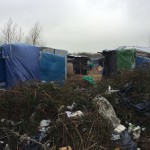

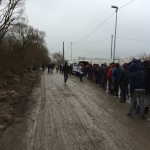

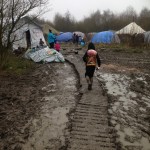
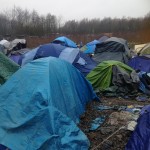
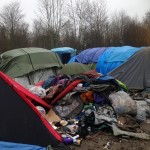
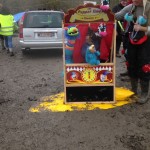
3 responses
Is there a way to get in touch with Marianne?
Abigail
Through Nicola would be the best way, I think.